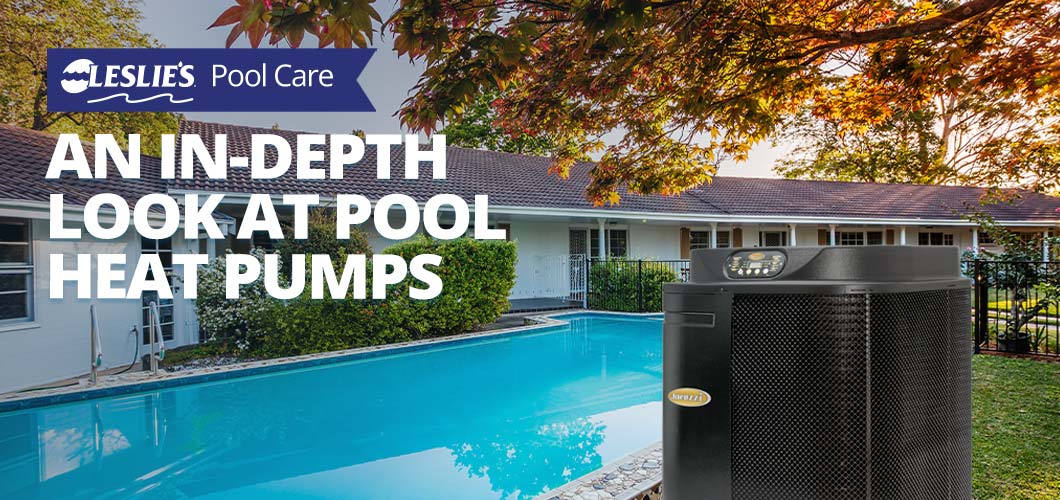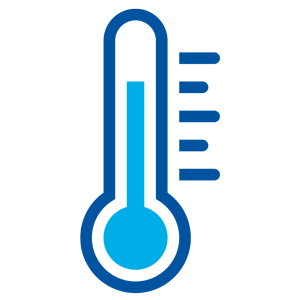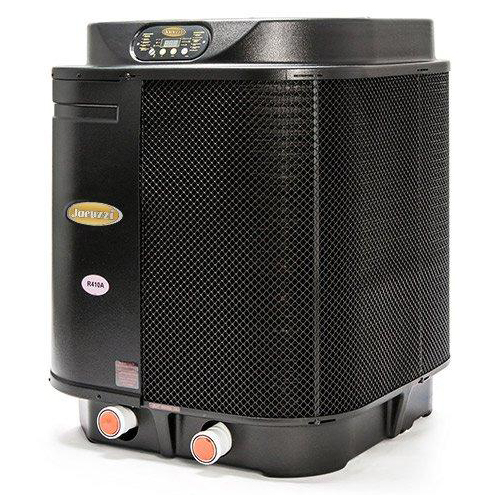
An In-Depth Look at Pool Heat Pumps
Did you know? Unlike natural gas or propane pool heaters, a pool heat pump can’t generate its own heat. This might sound strange at first — how else is a heat pump supposed to warm your pool water?!
Instead, heat pumps draw warmth from the surrounding air and simply transfer it to the pool. This process of transferring heat makes heat pumps more energy efficient than other types of pool heaters. Considering the significant energy savings, many pool owners are trading in their old gas pool heaters for a shiny new heat pump. But is it worth the upgrade? A lot of it depends on your location, budget, and the heating needs of your pool. Let’s take a closer look, shall we?
How Does a Pool Heat Pump Work?
It’s easiest to compare a heat pump to an air conditioner. In fact, they both look quite similar, and many internal components are the same. Much like an AC unit for your home, a pool heat pump simply transfers heat from one place to another using electricity and refrigerant.
First, a fan draws warm ambient air across an evaporator coil, which holds cool liquid refrigerant. Heat from the surrounding air is absorbed by the refrigerant, and it is converted into gas vapor as it heats up. This warm, low-pressure gas then goes through a compressor to increase pressure, and the vapor becomes quite hot. From the compressor, this hot, high-pressure vapor makes its way to the condenser.
As the hot refrigerant vapor makes its way through the condenser coil, its heat energy is transferred to the pool water surrounding the coil, and the refrigerant vapor is converted back into a liquid state. This high pressure liquid then passes through an expansion valve, and the cooled, low pressure liquid refrigerant then returns to the evaporator so the process can start again.
The fan continues to draw warm air across the evaporator coil, while blowing cool air out the top of the unit. At the same time, the heat pump pulls a continuous stream of cool water across the condenser coil to absorb the heat, and warm water is returned to the pool.
If you happen to purchase a reversible heat-cool model, this process can be reversed to cool the pool instead of heating it. Instead of drawing warmth out of the surrounding air, this reverse setting will extract warmth from the water and expel it from the top of the unit, effectively cooling the water.
Is a Heat Pump the Best Option for My Pool?
Since heat pumps pull warmth from the surrounding air, most models will only work efficiently when temperatures are above 50ºF. Humidity can also play a major role in a heat pump's efficiency — the more moisture in the air, the more warmth a heat pump can extract.
Because of the easily reversible setup, some heat pumps are designed to heat up OR cool down the water, depending on your settings and the time of year. Heat-cool heat pumps are especially popular in warmer climates for this very reason — they provide cooler water temperatures during the heat of summer, and can extend pool season by several months while warming the water during spring and fall.
One key consideration is whether or not your pool area can support the electrical needs of a heat pump. This piece of pool equipment generally requires a dedicated 50–60 amp breaker switch. You may need to hire an electrician to ensure your wiring setup can support the additional demand.
PRO TIP: Trying to decide between a gas heater and a heat pump? There are a few key differences that make them ideal under different scenarios. We go over all the pros and cons in our article, Swimming Pool Heater vs. Heat Pump.
What Size of Pool Heat Pump Do I Need?

Just as when sizing a gas pool heater, it's important to consider your pool size and the temperature differential when choosing the correct size of heat pump for your swimming pool. Other factors, including the average air temperature, humidity, and wind speeds, can also impact a heat pump’s ability to warm up your pool water.
Figuring on a temperature increase of 1–1.25 degrees per hour, you can use the following equation to estimate the minimum BTUs needed to meet your pool's heat pump sizing demands:
Surface Area x Temperature Increase x 12 = BTUs Needed
For example, we’ll look at an average rectangular pool, 14 feet wide by 28 feet long, requiring a 20ºF temperature increase during the coldest month of use.
(14 x 28) x 20 x 12 = 94,000+ BTU
Pool Volume vs. Heat Output
Already know your pool's volume, and looking for a quick reference on heat pump sizing? Look no further:
- Smaller pools up to 10,000 gallons can use heat pumps with a heat output of 60,000 BTU or higher.
- Pools up to 15,000 gallons can use heat pumps with a heat output of 90,000 BTU or higher.
- The average pool, up to 20,000 gallons, will often get the best results with a heat pump that has an output of 120,000 BTU or higher.
- Larger pools in the range of 25,000 gallons or greater will do best with a higher heat output of 140,000 BTU or higher.
Heat pumps max out around 140,000 BTU, so pools larger than 30,000 gallons may take a little longer to heat using this method. It’s important to purchase a properly sized unit in order to maximize heating efficiency and keep costs in check. Using a solar pool cover can also help reduce heat loss and boost efficiency.
PRO TIP: The higher the BTU rating, the higher the heat output. Even if you have a small or average-sized pool, investing in a higher heat output can pay off in the long run. Larger heaters tend to heat the pool faster, and can keep up during times of greater temperature differentials, keeping you swimming longer through the year. When it comes to any type of pool heater, bigger is almost always better.
Ready to enjoy a pool that consistently stays at the most comfortable temperature? No matter which pool heating option you decide to go with, Leslie's has you covered. Check out our diverse online selection, or stop by your local Leslie's to chat with one of our friendly pool experts about the best options for your pool.
